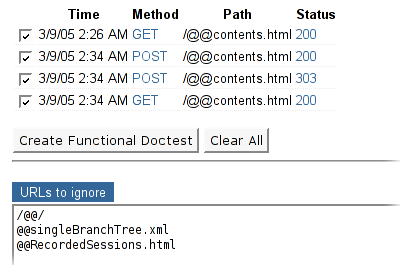A friend of mine told me yesterday that he got a significant disk access speed improvement by moving his Linux partition from the end to the beginning of the disk. The theory being that lower disk sectors are located on the outer rim, and are faster, because the disk rotates at a constant angular speed. I didn't believe this could give a 50% improvement, so I decided to do some benchmarking.
hdparm -t /dev/hda on my disk gives me transfer speeds between 20 to 24 MB/s on my 40 GB laptop disk. I hacked hdparm.c to seek to the end of the device, minus the number of sectors hdparm reads to determine disk speed, and ran it. I got a read error instead of a speed estimate. My 40 GB disk has an inaccessible Host Protected Area of about 4 GB at the end, and although the kernel claims it disabled the HPA, reading it gives me I/O errors.
I then changed my hack to skip the HPA as well, ran it, and got 3.5 MB/s. Wow, I thought. I never thought the difference could be so significant. I ran the regular hdparm to double-check, and got 3.5 MB/s again. Wait a minute... It turned out that the kernel saw disk I/O errors from the HPA, and decided to disable DMA. After a quick hdparm -d 1 /dev/hda, I once again saw 24 MB/s at the beginning of the disk, and almost the same value at the end:
mg@perlas:~/src/apt-sources/hdparm-5.8 $ for i in 1 2 3; do sudo hdparm -T -t /dev/hda; done /dev/hda: Timing cached reads: 844 MB in 2.01 seconds = 420.80 MB/sec Timing buffered disk reads: 74 MB in 3.07 seconds = 24.13 MB/sec /dev/hda: Timing cached reads: 852 MB in 2.01 seconds = 424.79 MB/sec Timing buffered disk reads: 74 MB in 3.08 seconds = 24.04 MB/sec /dev/hda: Timing cached reads: 804 MB in 2.00 seconds = 401.46 MB/sec Timing buffered disk reads: 74 MB in 3.02 seconds = 24.50 MB/sec mg@perlas:~/src/apt-sources/hdparm-5.8 $ for i in 1 2 3; do sudo ./hdparm -T -t /dev/hda; done /dev/hda: Timing cached reads: 848 MB in 2.01 seconds = 422.38 MB/sec Seeking to the end of device: 35573459456 Timing buffered disk reads: 74 MB in 3.03 seconds = 24.43 MB/sec /dev/hda: Timing cached reads: 856 MB in 2.00 seconds = 427.21 MB/sec Seeking to the end of device: 35573459456 Timing buffered disk reads: 74 MB in 3.03 seconds = 24.39 MB/sec /dev/hda: Timing cached reads: 800 MB in 2.01 seconds = 398.67 MB/sec Seeking to the end of device: 35573459456 Timing buffered disk reads: 72 MB in 3.04 seconds = 23.69 MB/sec
Conclusion: physical location of a partition does not change the linear transfer speed significantly.
Multi Disk System Tuning HOWTO has a section on physical track positioning. It mentions another optimisation: if you position your partition in the middle of the disk, you will reduce average seek time by 50%. Benchmarking that is, however, more difficult than just adding an lseek call to hdparm.c, so I didn't.


